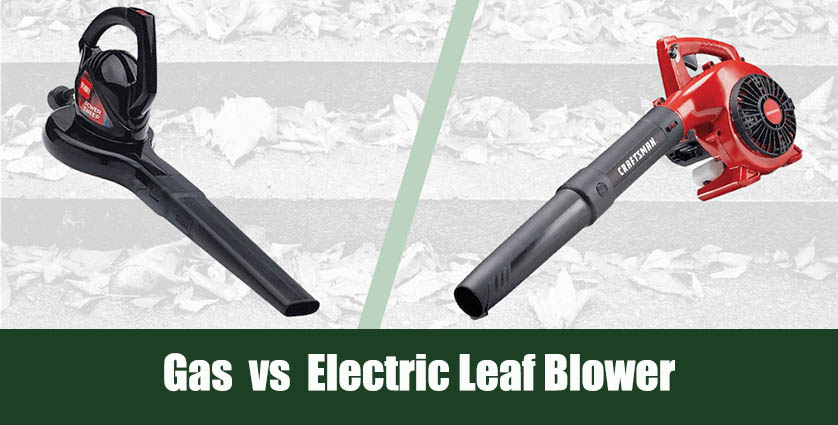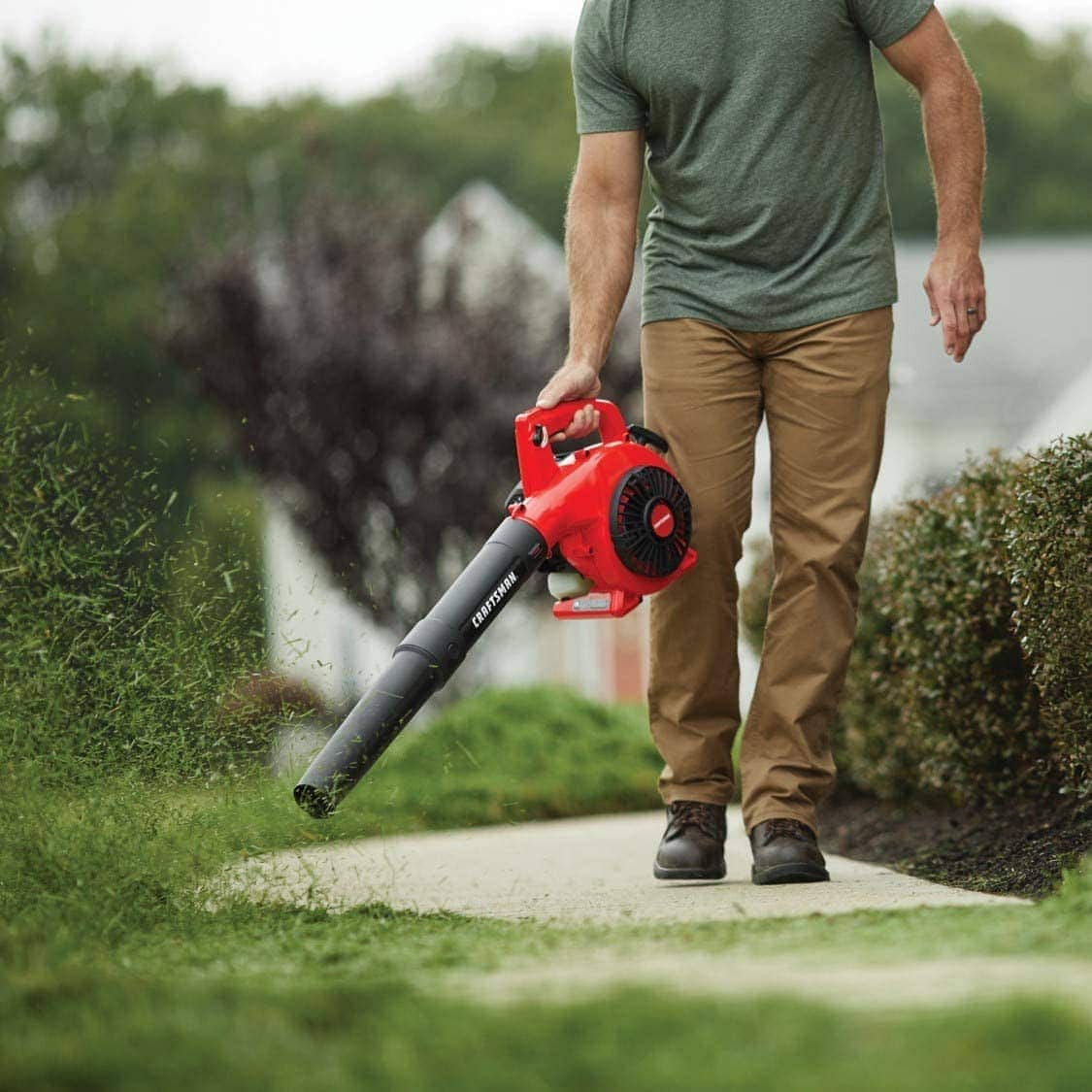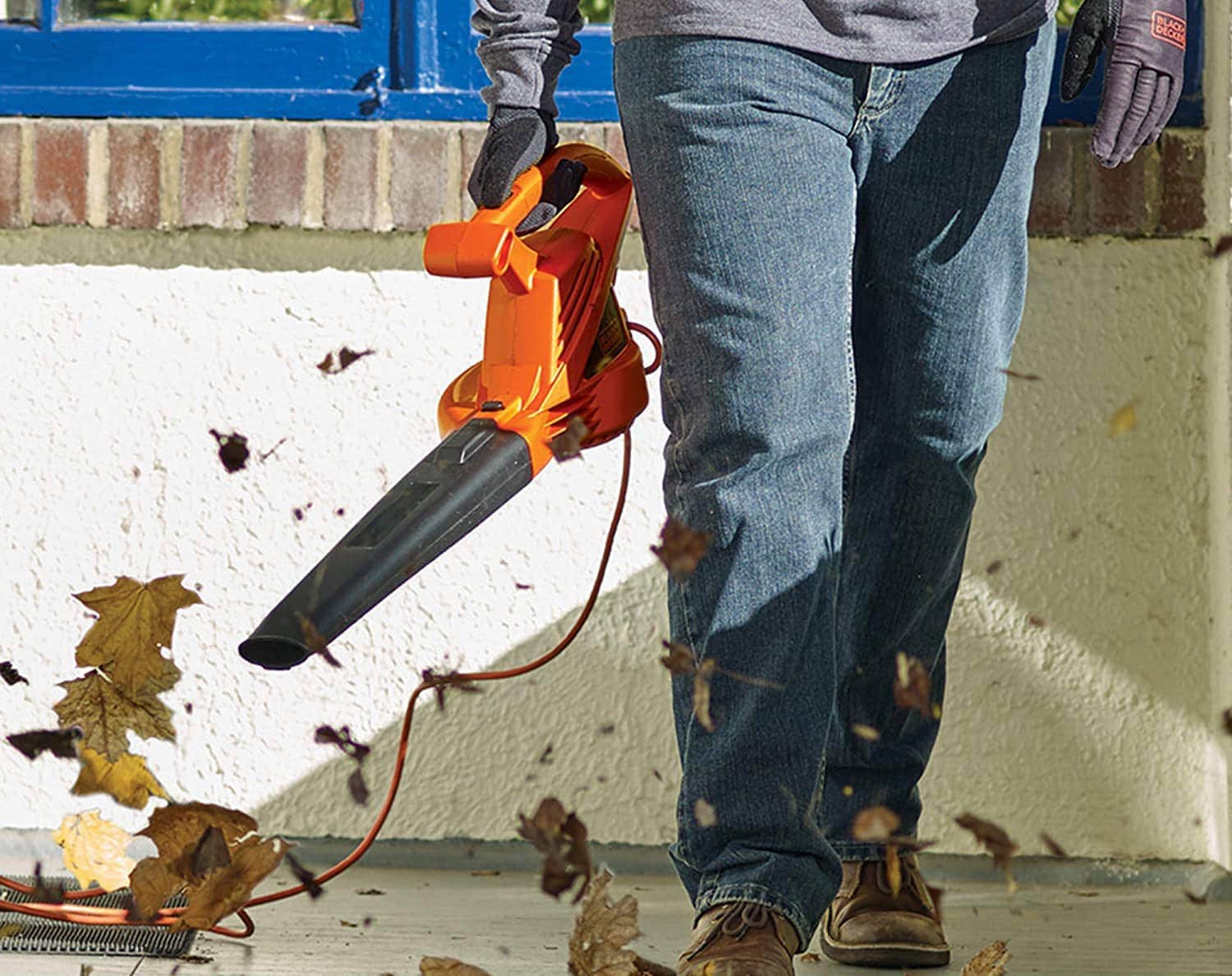Gas vs Electric Leaf Blower: How Do You Choose?
-
Pete Ortiz
- Last updated:

Leaf blowers can be exceedingly helpful at clearing up the mess of leaves fall often brings. However, choosing the right leaf blower for the job is essential. Otherwise, you’ll turn what could be a quick, relaxing job into one of frustration.
There are many different types of leaf blowers on the market, and it almost seems like new types are added daily. You can find leaf blowers equipped with wheels, some in the form of backpacks, and smaller, handheld machines as well.
The two main types of leaf blowers are gas and electric. Electric leaf blowers also come in a variety of sub-types, such as corded and cordless models. Both types have their strengths and weaknesses. Which one you need depends mostly on your situation and the terrain of your yard.
In this article, we’ll go over each type of leaf blower in-depth, helping you choose the best option.
Gas Leaf Blowers
Gas leaf blowers can go anywhere, as long as you bring fuel with you. They aren’t restrained by a cord and don’t have batteries that need to be recharged. However, you do have to purchase fuel for them, and sometimes mix this fuel yourself. Still, fuel is not expensive, especially if you’re just breaking out the leaf blower every autumn.
Power
Gas leaf blowers are almost always going to be the most powerful option. Obviously, the bigger the gas leaf blower you purchase, the more powerful it is going to be. Handheld leaf blowers are suitable for most everyday consumers, but they are the least powerful option. Backpack leaf blowers and those on wheels are much more powerful, but they’re more challenging to move around.
Noise
This can lead to problems in neighborhoods with noise restrictions. Often, a big, gas-powered leaf blower is going to blow right past any noise ordinances your neighborhood might have. We highly recommend looking up your local laws regarding noise before purchasing the biggest machine you can find.
Price
Gas-powered leaf blowers are often more expensive than electrical-powered options. Cheaper gas options are going to be about the same cost as a battery or corded leaf blower. However, once you start looking at more powerful gas options, you’re quickly going to leave the electrical machines behind. These leaf blowers can easily reach up to $500.
Weight
Gas leaf blowers often weigh more than those powered by electricity. You have to carry around a gas engine and all your fuel, which adds up quite fast.
If you decide to get a backpack model to help you carry around all that extra weight, you’re looking at a substantially higher price tag than other models. With a gas-powered machine, you either have to carry around the extra weight or pay a higher price.
- Powerful
- Can be used anywhere
- Longer lifespan in most cases
- Heavy
- Can cost more
- Requires gasoline
- Noisy
Electric Leaf Blower
Electric leaf blowers are powered with electricity, either in the form of a cord or a battery. As you might imagine, corded options are only really suitable for smaller yards or those who only drag out the leaf blower once a year (with lots of extension cords). Battery-powered versions are far more versatile, but you have to remember to charge the battery.
Power
More electric leaf blowers are not going to be as powerful as their gas-powered cousins—however, some corded options to come close. Typically, you’re going to pay quite a bit more for one of these extra-powerful models, though.
Luckily, most homeowners don’t need a super-powerful leaf blower. If you’re just moving leaves from a few different trees, one of these less-powerful options is likely all you need.
Noise
Electric leaf blowers are generally much quieter than gas ones. They aren’t silent by any means, but they should have no problem staying within neighborhood noise restrictions. Of course, the exact noise level of each machine varies. Still, if getting a quiet leaf blower is vital to you, an electrical one is the way to go.
Price
The price for these leaf blowers is often much lower than gas-powered options. Most electrical leaf blowers top out at $150 – far under the $500 you could be paying for one that runs on gas. You can get a relatively decent electrical leaf blower for $50 quickly.
Even more significant, heavier-duty electrical machines aren’t going to cost as much as their gas counterparts.
Plus, you don’t have to spend money purchasing gasoline either, so you’ll also save more money in the long-run.
Weight
Electrical leaf blowers are almost always lighter than gas ones. However, the weight of electrical blowers varies widely. Those that are powered by batteries are going to be heavier than corded options, simply because you have to carry the battery around.
- Lighter
- Cheaper
- Quieter
- Not as powerful
- Constrained by a cord
Which Leaf Blower is Right for Your Needs?
Electric and gas leaf blowers do the same job in the end – blow leaves. However, choosing the right leaf blower can be the difference between an anxiety-inducing yardwork session and one that is very laidback.
For Smaller Yards
For those with small to medium-sized yards, we recommend an electric leaf blower. You generally don’t need the power of a large, gas-powered leaf blower to clear the leaves from a small yard. A corded leaf blower may have enough reach to access the bulk of your yard without sacrificing the power.
Still, even a battery-powered machine will probably be plenty of smaller yards.
For Large Yards
If your yard is expansive, you may need to upgrade to a gas leaf blower. A corded, electric leaf blower is likely not going to reach all the parts of your yard unless you bring out a ridiculous number of extension cords. Battery-powered machines only run for so long before they need to be recharged, so you may not be able to do your whole yard in one go with one.
A smaller, gas-powered leaf blower is likely the best option in these cases.

For Year-Around Maintenance
For those that plan on using your leaf blower for more than just leaves, we recommend either a battery-powered or gas-powered model. It depends on how long you’re going to be using the leaf blower at a time. Remember, battery-powered options do need to be recharged, so you may not be able to complete your whole project at once.
If you can complete your yard work before the battery needs recharged, a battery-powered model is a decent option. However, if you’re going to be up and around with the leaf blower for hours, you need a gas-powered option.
For Professionals
All professionals likely need a gas-powered leaf blower. You just can’t trust that there will be an available outlet wherever you’re going. Stopping to charge your leaf blower’s batteries is often not a great option, either. It is best to spend the extra money on a gas-powered model.
See Also:
- Milwaukee M18 Leaf Blower Review
- 10 Best Budget Leaf Blowers under $100
- 5 Best Walk Behind Leaf Blowers
Featured Image Credit: Vlad Vasnetsov, Pixabay
Contents





